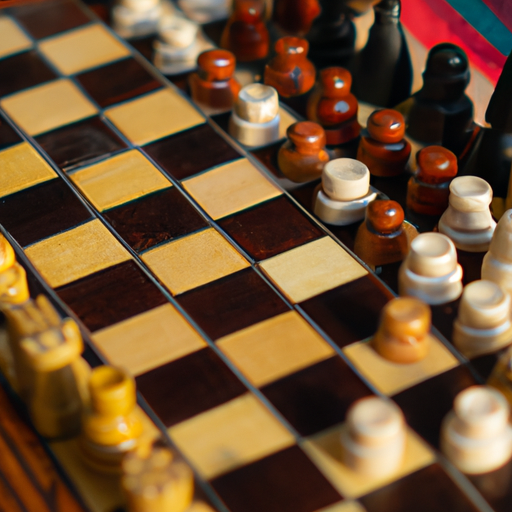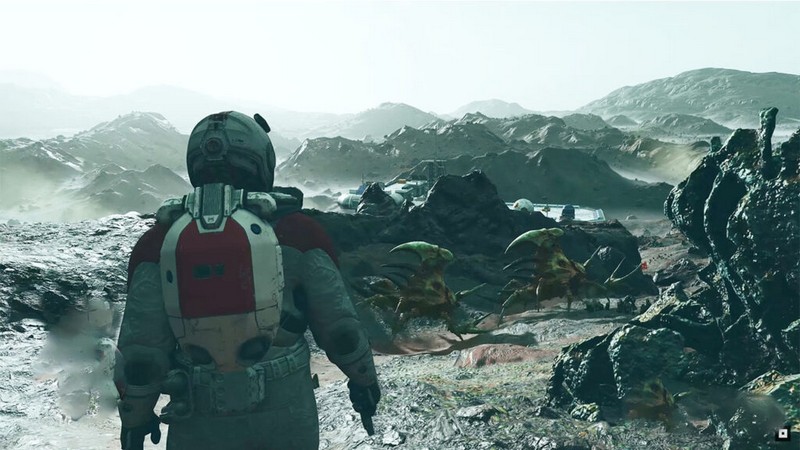Game theory is a powerful tool for understanding and predicting the behavior of people in competitive situations. It is based on mathematical models that analyze how different actors interact with each other in pursuit of their own interests. Game theory has been used to study economic, political, and military problems, as well as many aspects of human behavior. This article will explain the basics of game theory and provide examples of how it can be applied to real-world situations.
Game theory consists of several components: identifying the players involved, analyzing the rules governing their interactions, calculating their optimal strategies or outcomes, and finally testing those results against actual outcomes. Most game theorists focus on finding a Nash equilibrium – an outcome where no player can improve his or her position by making any changes to his or her strategy – but there are other possible solutions as well. This article will discuss the steps necessary to apply game theory in order to understand complex interactions between multiple parties.
Understand the Basics of Game Theory
An understanding of the fundamental concepts of strategic decision-making is essential in order to comprehend the intricacies of competitive interaction. Game theory provides a framework for analyzing complex situations and making strategic choices, by taking into account the motivations of all players involved. The core idea behind game theory is that decisions made by one player will affect other players, so it is important to understand how each player will respond to different strategies. This can be done through careful analysis of all possible outcomes and scenarios that could arise from each decision.
Game theory involves utilizing mathematical models and tools in order to make predictions about the behavior of each individual player in a given situation. By considering the preferences and interests of all players, one can gain an insight into their motivations and make inferences about how they might act under various circumstances. Additionally, game theory can also be used to identify optimal solutions for any given problem, allowing for more efficient allocation of resources among all participating parties.
In applying game theory, it is necessary to consider both short-term as well as long-term implications when evaluating potential outcomes. A thorough evaluation should include consideration of every possible scenario that could occur between two or more individuals or groups over time. Furthermore, special attention should be paid to incentives created by strategic moves; these incentives are powerful motivators which can lead to unforeseen results if not properly accounted for during initial planning stages.
Identify the Game
Identification of the game is a crucial step in leveraging game theory. Understanding which type of game is being played allows players to make strategic choices based on the outcomes and actions of others, as well as cooperative play that further their own interests. It is important to note that different types of games can have different levels of complexity, thus requiring different strategies for success.
In analyzing a game, it must first be determined if it is a zero-sum or non-zero sum game. A zero-sum game implies that one player’s gain equals another player’s loss, while in a non-zero sum game this does not necessarily hold true. Additionally, depending on the context and situation, there may be multiple elements at play such as mixed strategy games where players employ randomization techniques to maximize their chances for success.
Further considerations must also be taken into account when determining the type of game being played such as whether there are finite or infinite actions available; if information about other players’ strategies is known or unknown; and how many times a particular combination might occur during gameplay. All these factors help to identify what type of approach should be employed by each participant in order to achieve their desired outcome from the interaction with others within the framework of the identified game.
Analyze the Situation
After identification of the game, it is important to analyze the situation in order to develop and execute a strategic plan that maximizes success. Utilizing game theory, an individual can delve into analyzing trends and determine how they may affect current outcomes or future decisions. This allows for more informed strategic decisions to be made with regards to the game’s rules, strategies, and payoffs. Furthermore, analyzing the situation provides insight into how opponents may react in response to certain moves.
To properly analyze the situation at hand, data pertaining to past games should be collected and studied closely in order to identify any patterns or behaviors that may help inform strategies going forward. Additionally, understanding variables such as opponent’s ambitions or risk tolerance helps one anticipate various scenarios in which they could benefit from making certain decisions while minimizing losses. This type of analysis also provides valuable information on potential changes that may need to be implemented mid-game due to unforeseen circumstances or alterations in strategy by an opponent.
A comprehensive analysis of all aspects of the game ensures greater success when attempting a strategy since all elements have been taken into consideration and accounted for accordingly.. With this knowledge in hand, an individual can construct a detailed plan encompassing multiple possible scenarios along with predetermined reactions thereby increasing their chances of winning while simultaneously limiting their overall losses.
Calculate the Optimal Outcome
By utilizing game theory, one can calculate the optimal outcome in order to maximize success and minimize losses. When making strategic decisions, game theory allows for an analysis of the cooperative game – meaning how players interact and intervene with one another as they make decisions. This is done by taking into account all possible outcomes and assigning a value to each based on its potential benefit or cost. The best strategy is then chosen based on which will yield the highest return for a given player or group of players.
The calculation of the optimal outcome involves analyzing all possible choices available to each player in a game, then determining the likelihood that other players will make certain moves when faced with those choices. By doing this, one can create a payoff matrix that compares expected gains or losses across different scenarios. This helps in constructing an optimal solution by assessing long-term consequences rather than just looking at immediate returns from any given move. Furthermore, it enables players to identify which strategies are more likely to succeed over time and also provides insight into how their opponents might react in various situations.
Game theory can also be used to evaluate complex competitive scenarios where multiple parties are involved and there are many variables at play that could result in different outcomes depending on what course of action is taken by each party involved. Through this analysis, one can determine which strategy would lead to more favorable results overall while still considering individual gains or losses for each participant in the scenario. In addition, game theory allows for deeper understanding of how competing interests interact with each other during decision-making processes so as not only achieve desired outcomes but also develop better strategies going forward.
Apply the Model to Real-World Situations
Examining real-world scenarios through the lens of game theory can help to identify the optimal strategies for achieving desired outcomes. By analysing social dynamics, risk assessment and economic variables, it allows for an understanding of the different incentives that drive players within a given scenario. This approach is particularly useful in situations where there are multiple stakeholders with conflicting objectives or interests. In particular, it can be used to anticipate future behaviours and plan accordingly so as to achieve one’s own goals.
The application of game theory can take many forms depending on the context. Within business context, it often involves competitive analysis to determine how rivals may respond to certain moves or changes in tactics. This model of competitive analysis helps stakeholders develop better strategies for mitigating risks associated with their actions and decisions. Additionally, game theory models can also be used to design auction structures and pricing strategies which maximize profits while minimizing losses due to competition from other parties involved in the same market.
In order for its application to yield meaningful results though, the model must be adapted according to the situation at hand and have sufficient data available in order to accurately simulate various scenarios. Moreover, its use requires an understanding of both microeconomic principles as well as an appreciation of human behaviour patterns which influence decision-making processes when faced with uncertainty or difficult choices between competing objectives or courses of action. When applied correctly, this tool offers powerful insights into complex real-world problems that would otherwise remain obscured without such rigorous examination techniques being utilized.
Frequently Asked Questions
How can game theory be used to make decisions in everyday life?
Game theory can be used to make decisions in everyday life by assessing the risks and benefits of a given situation. By understanding the cost-benefit ratio of a particular decision, an individual can determine which option is most advantageous for them. It is important to note that game theory requires careful analysis, as it requires consideration of both immediate and long-term effects. Further, game theory can also be applied to more complex situations, such as negotiations between two or more parties with conflicting interests. Ultimately, game theory allows individuals to make better decisions based on logical reasoning and risk assessment.
How does game theory differ from other decision making models?
Game theory is a decision making model that can be used to analyze interactions between two or more parties. It differs from other models in its focus on strategic bargaining, where both parties are attempting to maximize their own gain at the expense of the other. This means that game theory takes into account not only the expected outcome, but also the risks involved in any given situation. Additionally, it is an analytical framework that enables analysts to calculate mathematical probabilities and estimate various scenarios based on those probabilities. As such, game theory can provide a comprehensive approach to decision making which takes into account both strategic and risk analysis considerations.
What are the advantages of applying game theory to a problem?
The application of game theory to a problem provides several advantages in terms of strategic reasoning and risk analysis. By using game theory, it is possible to identify the best outcome for all parties involved and determine the most effective strategies for achieving that outcome. Additionally, game theory can be used to analyze different scenarios and develop optimal solutions that are based on predicted outcomes. Through this approach, it is possible to accurately assess risks associated with various decisions, allowing stakeholders to make informed decisions that maximize their gain while minimizing their losses.
What is the best way to learn more about game theory?
Game theory can be used to analyze strategic decisions, evaluate risk and assess the behavior of various agents, such as individuals or organizations. To learn more about game theory, it is important to familiarize oneself with the theoretical aspects of the field. This involves studying basic concepts such as utility functions and Nash equilibria and understanding how these concepts are applied to different problems. Additionally, it is helpful to gain an understanding of related fields such as economics and decision analysis in order to develop a holistic knowledge of game theory. In order to become proficient in game theory, it is necessary to study real-world examples through simulations and practice applying what has been learned in context.
How is game theory used in business and economics?
Game Theory is a branch of mathematics used to analyze strategic interactions between individuals or organizations in business and economics. It is most commonly used to study market competition, price dynamics, and the effects of incentives on decisions. By considering the interests of each actor involved, it can be used to better understand how different firms might respond to each other’s strategies, allowing for more accurate predictions about outcomes. Additionally, game theory has been applied to many areas of economics, such as auctions and bargaining processes, virtual markets, and even international relations.
Conclusion
Game theory is a powerful tool for making decisions in complex, competitive situations. Through careful analysis of the players involved, their goals and strategies can be identified and used to calculate an optimal outcome. By understanding the basics of game theory and applying it in real-world scenarios, decision makers can maximize their success and minimize losses. Furthermore, game theory provides an analytical framework for thinking about how various parties interact and may influence each other’s behavior. As such, it is a valuable tool for predicting outcomes and making informed decisions in challenging situations.











